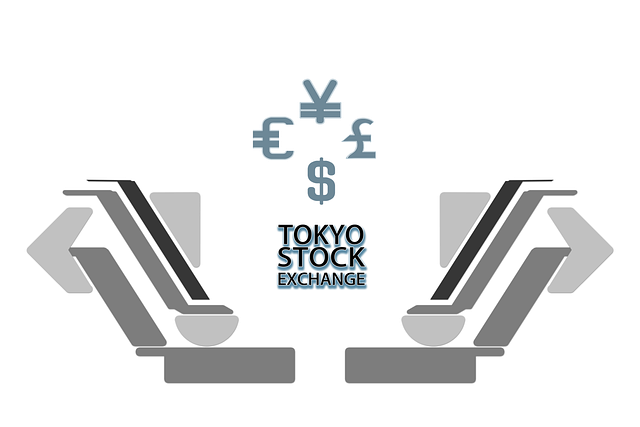Master Forex Strategies: Trade Confidently in Australia’s Markets
The forex market is a global, dynamic network influenced by economic factors and central bank policies. Australian traders face risks that require robust risk management strategies, including position sizing, stop-loss orders, and diversificatio…….

The forex market is a global, dynamic network influenced by economic factors and central bank policies. Australian traders face risks that require robust risk management strategies, including position sizing, stop-loss orders, and diversification. Technical analysis aids in understanding market trends via chart patterns and indicators. A structured trading plan, with clear entry/exit rules and risk management techniques, is vital for success. Emotional intelligence manages fear and greed, promoting disciplined decision-making based on market analysis. Effective forex strategies balance risk and reward, aligned with individual risk tolerance.
“Dive into the dynamic world of forex trading in Australia with confidence! This comprehensive guide equips aspiring traders with essential tools for success. From deciphering market dynamics and risk management techniques to mastering technical analysis and crafting a consistent plan, we explore key forex trading strategies. Learn to tame fear and greed, navigate complex patterns, and make informed decisions. Discover the secrets to becoming a skilled forex trader in Australia’s thriving financial landscape.”
- Understanding Forex Markets: Key Players and Dynamics
- Effective Risk Management Strategies for Forex Traders
- Technical Analysis: Chart Patterns and Indicators Mastery
- Building a Consistent Trading Plan: Strategies and Rules
- Emotional Intelligence: Controlling Fear and Greed in Forex
Understanding Forex Markets: Key Players and Dynamics

The foreign exchange market, or forex, is a vast and complex network where currencies are bought and sold, influenced by various economic factors and global events. In Australia, as in many other countries, forex trading has gained popularity among investors seeking to diversify their portfolios and profit from currency fluctuations. Understanding the key players and dynamics within this market is essential for any aspiring trader.
Central banks play a pivotal role, influencing monetary policy and setting interest rates, which can significantly impact exchange rates. International institutions like the World Bank and IMF also have a say in global economic stability, indirectly affecting forex markets. Additionally, economic indicators such as GDP growth, inflation rates, employment data, and trade balances are closely watched by traders worldwide. These indicators provide insights into a country’s economic health, prompting speculators to position themselves accordingly, implement effective forex trading strategies, and drive market movements.
Effective Risk Management Strategies for Forex Traders

Forex trading involves inherent risks, making effective risk management crucial for Australian traders seeking confidence in their ventures. A robust strategy should encompass setting clear stop-loss orders to limit potential losses and protect capital. Traders must also practice position sizing, determining how much of their equity they’re willing to allocate per trade, ensuring no single deal exposes them to excessive risk. Diversification is another key tactic; spreading investments across multiple currency pairs reduces the impact of any single unfavourable move.
Moreover, risk management extends beyond individual trades. Regularly reviewing and adjusting risk parameters based on market conditions is essential. Utilizing tools like risk calculators can help traders make informed decisions, ensuring their strategies align with their risk tolerance levels. This proactive approach fosters a disciplined trading environment, enhancing the likelihood of sustained success in the dynamic forex market.
Technical Analysis: Chart Patterns and Indicators Mastery

Technical analysis is a powerful tool for Forex traders, offering insights into market trends and potential price movements through chart patterns and indicators. By mastering these tools, Australian traders can identify key support and resistance levels, detect trend direction, and anticipate potential reversals or continuations.
Chart patterns such as head and shoulders, double tops and bottoms, and triangles provide visual cues about market psychology and potential breakouts or breakdowns. Indicators like moving averages, Relative Strength Index (RSI), and MACD help traders confirm signals and measure momentum. Combining these elements allows for the development of effective forex trading strategies tailored to individual risk tolerances and market conditions.
Building a Consistent Trading Plan: Strategies and Rules

Building a consistent trading plan is a cornerstone for successful forex trading in Australia. It involves defining clear entry and exit rules, risk management guidelines, and position sizing criteria. Effective strategies might include setting stop-loss orders to limit potential losses, taking profits when certain price targets are met, or employing trend-following indicators like Moving Averages and Relative Strength Index (RSI). These rules ensure disciplined decision-making and help traders maintain emotional control during volatile markets.
Traders should also establish consistent trading routines, such as daily or weekly review sessions, to assess performance, identify areas for improvement, and adjust their strategies accordingly. Adhering to a predefined set of guidelines not only increases the likelihood of profitable trades but also fosters confidence in one’s abilities, enabling traders to navigate the dynamic forex market with greater poise and precision.
Emotional Intelligence: Controlling Fear and Greed in Forex

Emotional intelligence is a crucial component of successful forex trading, as it involves managing intense emotions like fear and greed. These feelings can often lead to impulsive decisions, causing traders to either hold on to losing positions too long or quit at the first sign of trouble. Effective forex trading strategies rely heavily on discipline and emotional control.
Traders must learn to recognize when their emotions are clouding their judgment and implement measures to stay calm under pressure. Techniques such as setting clear entry and exit points, utilizing stop-loss orders, and practicing disciplined risk management can help mitigate the impact of fear and greed. By keeping a level head, traders can make rational decisions based on market analysis, reducing the likelihood of costly mistakes and fostering confidence in their forex trading journey.
Trading forex in Australia can be a rewarding yet challenging endeavor. By understanding market dynamics, employing effective risk management strategies, mastering technical analysis tools, and developing a robust trading plan, you can enhance your confidence and make informed decisions. Additionally, cultivating emotional intelligence is key to navigating the highs and lows of forex with discipline and control. Adopting these proven forex trading strategies will empower you to confidently navigate Australia’s financial markets.







